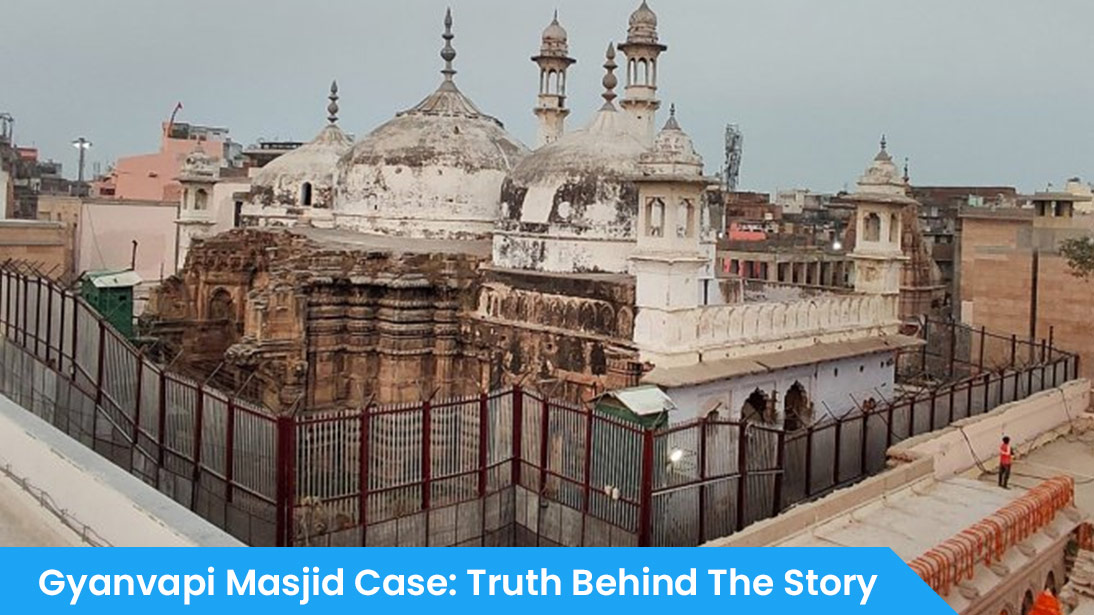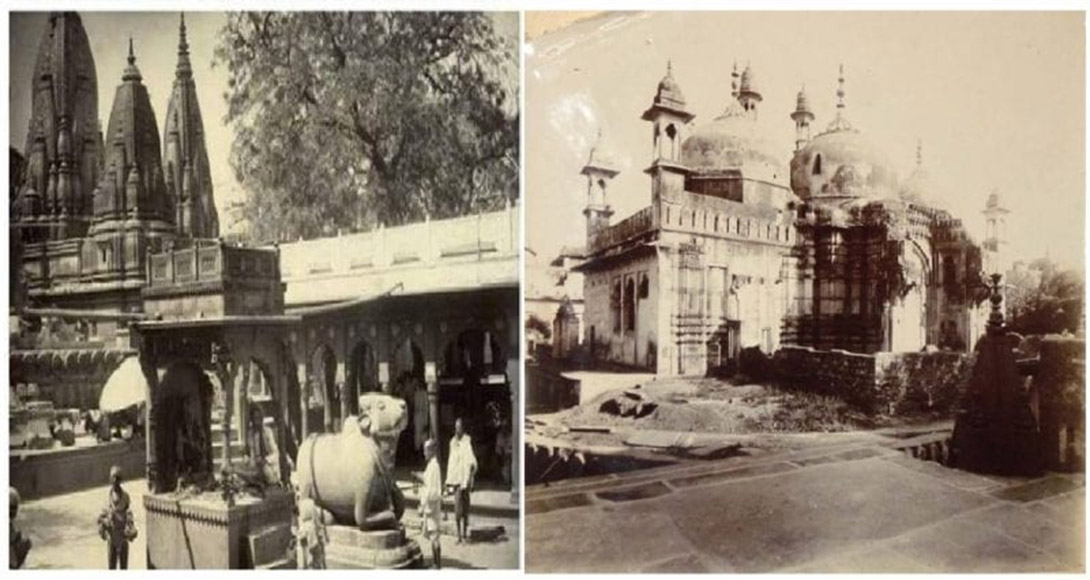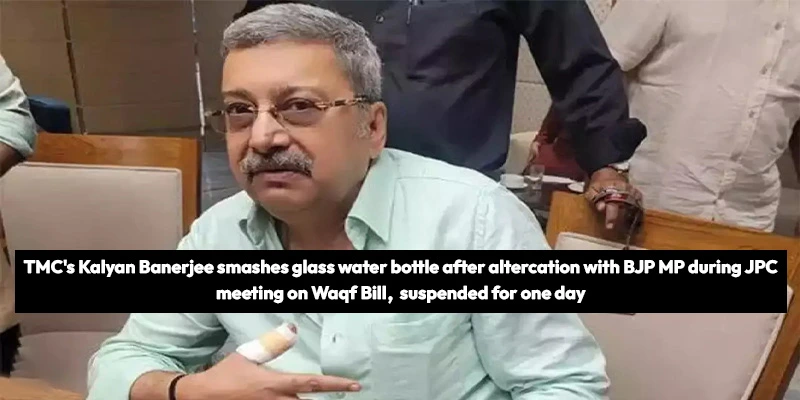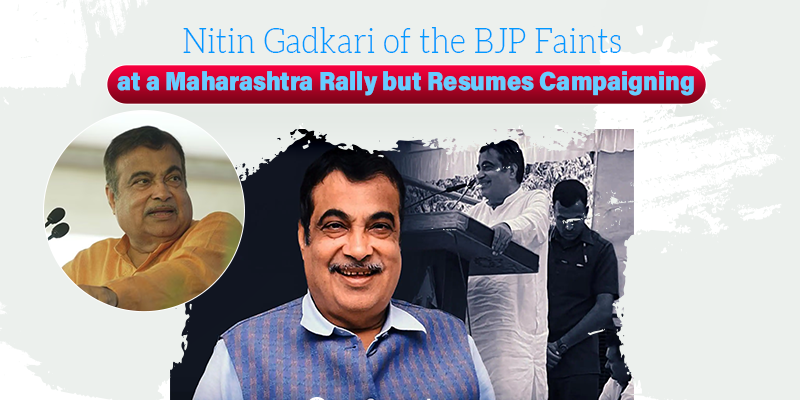
Recently we have witnessed that the monumental Kashi Vishwanath – Gyanvapi masjid issue reached the honorable Supreme Court. While the local court in Varanasi has directed the Archeological Survey of India (ASI) to probe the structure of the Gyanvapi masjid we will have to wait and see what the findings would tell. For ages, it has been a contentious issue and still, the truth behind the Gyanvapi Masjid case hasn’t been unfurled.
History
Gyanvapi masjid, located in Varanasi, Uttar Pradesh was constructed by the Mughal Emperor Aurangzeb in 1669 after the demolition of an old Shiva temple. Turning the pages of history we find that originally the site had a Vishweshwar temple that was established by Todar Mal. The temple had then been refurbished around the early 17th century. The details and history of the Gyanvapi masjid have been debated throughout.

Around 1669 Aurangzeb ordered the demolition of the temple and issued instructions for the construction of the mosque in its place. The name is derived from the adjoining well, Gyan Vapi (Well of Knowledge). The site’s history has been vehemently contested by local Hindus and Muslims.
Claims
(1) Hindus
It’s argued that there has been repeated destruction and reconstruction of the original temple. The local textbooks also mentioned the same about the mosque’s past. Pilgrims who visit the Kashi Vishwanath temple are told similar things about the history of Gyanvapi masjid.
Though the original temple has is said to been first demolished by Qutb Al-Din – Aibak around 1193/94 CE. After that, the temple was reconstructed by various Hindu rajas and finally fell victim to Aurangzeb’s religious policies.
(2) Muslims
Most of the Muslims of the city reject the claims made by various Scholars, Hindus, and colonial accounts. The theory put forward by the Muslims is that they claim it never to be a temple but rather a structure of the Din-I-Illahi faith. They say that it was destroyed by Aurangzeb because of his antagonism against Akbar’s ‘heretical’ thought school.
Aurangzeb’s edicts are cited as an example for Hindus which gave protection to all the Hindu temples at Banaras as well as his patronage to various Hindu temples, schools, and monasteries. Some even believe that both the Gyanvapi masjid and the Kashi Vishwanath temple were constructed by Akbar as he had a spirit of religious tolerance.
Colonial and Postcolonial era
Colonial and postcolonial times have witnessed many communal confrontations taking place between the Hindus and the Muslims. Several court hearings took place to sort out an answer for the contentious issue but to no avail. It was after that in 2021 that the local court ordered the Archeological Survey of India (ASI) to conduct a survey. An expert committee was constituted to take up the task of the survey the survey was then indefinitely stayed.
Gyanvapi Masjid Case: Recent Servey

The honorable Supreme Court of India has ordered the Varanasi DM to protect the area where a Shivling has been discovered without curtailing the rights of the Muslims to enter and worship. The next hearing will take place on the 19th of May. Moreover, the court has granted two days for the survey report submission.
While the Supreme Court was hearing the plea filed by the Anjuman Intezamia Masjid, Varanasi, who is challenging the videography survey ordered by the local court of the Maa Shringaar Gauri still inside the complex. The Muslim body is contending that it’s contrary to the provisions of the Places of Worship (Special Provisions Act) 1991. On the other hand, the Hindu Sena President filed for an intervention demanding the dismissal of the appeal.
What do Places of Worship (Special Provisions Act 1991) say?
The act was enacted by the Parliament to protect and prohibit the conversion of any places of worship in the country as well as maintain their religious character as it existed on 15th August 1947. The Act strictly prohibits the conversion of a mosque into a temple and vice versa.
We will have to wait and see how things unfold and what stance the Supreme Court will take on the Gyanvapi Masjid case. As the Law states the Supreme Court will have to abide by the Rules mentioned under the act and deliver a verdict that will not hurt the sentiments of both the Faiths. It seems that there isn’t any probability of the demolition of the Gyanvapi Masjid or reconstruction of the temple.










